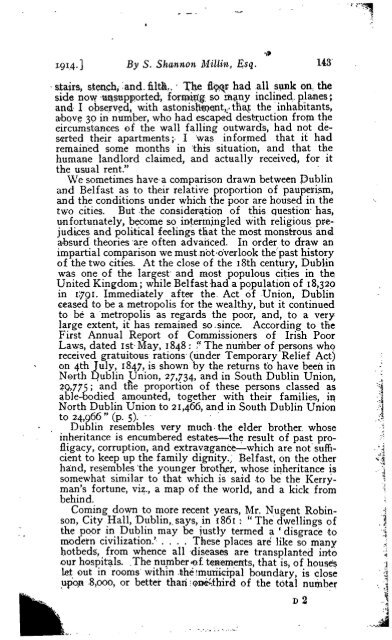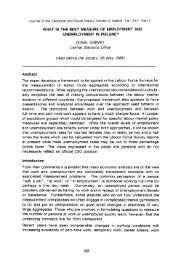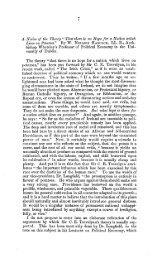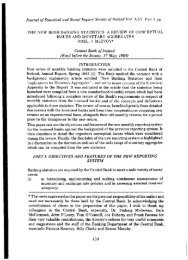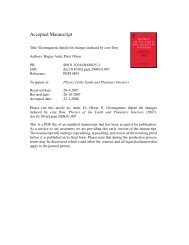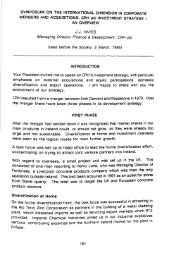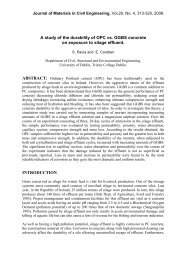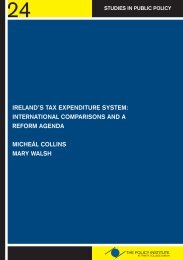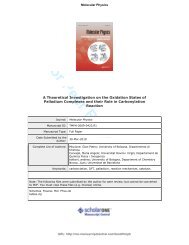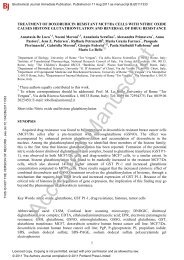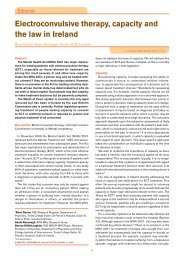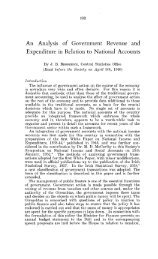Read Friday, 23rd January, 1914. - TARA - Trinity College Dublin
Read Friday, 23rd January, 1914. - TARA - Trinity College Dublin
Read Friday, 23rd January, 1914. - TARA - Trinity College Dublin
Create successful ePaper yourself
Turn your PDF publications into a flip-book with our unique Google optimized e-Paper software.
LG.I4-] By S. Shannon Millin, Esq. 143'<br />
siairs, stench, 'and-filtH., • The flox^r had all sunk oa the<br />
side now unsupported, foripin;g : so many inclined, planes;<br />
and I observed,, with astonishment^ tha| the inhabitants,<br />
above 30 in number, who had escapee! destruction from the<br />
circumstances of the wall falling outwards, had not deserted<br />
their apartments; I was informed that it had<br />
remained some months in this situation, and that the<br />
humane landlord claimed, and actually received, for it<br />
the usual rent."<br />
We sometimes have a comparison drawn between <strong>Dublin</strong><br />
and Belfast as to their relative proportion of pauperism,<br />
and the conditions under which the poor are housed in the<br />
two cities. But the consideration of this question has,<br />
unfortunately, become so intermingled with religious prejudices<br />
and political feelings that the most monstrous and<br />
absurd theories are often advariced. In order to draw an<br />
impartial comparison we must not overlook the past history<br />
of the two cities. At the close of the 18th century, <strong>Dublin</strong><br />
was one of the largest and most populous cities in the<br />
United Kingdom; while Belfast had a population of 18,320<br />
in 1791. Immediately after the. Act of Union, <strong>Dublin</strong><br />
ceased to be a metropolis for the wealthy, but it continued<br />
to be a metropolis as regards the poor, and, to a very<br />
large extent, it has remained so^since. According to the<br />
First Annual Report of Commissioners of Irish Poor<br />
Laws, dated 1st May, 1848 : " The number of persons who<br />
received gratuitous rations (under Temporary Relief Act)<br />
on 4th July, 1847, is shown by the returns to have been in<br />
North <strong>Dublin</strong> Union, 27,734, and in South <strong>Dublin</strong> Union,<br />
?9>775 y and trie proportion of these persons classed as<br />
able-bodied amounted, together with their families, in<br />
North <strong>Dublin</strong> Union to 21,466, and in South <strong>Dublin</strong> Union<br />
to 24,966 " (p. 5). - -<br />
<strong>Dublin</strong> resembles very much the elder brother whose<br />
inheritance is encumbered estates—the result of past profligacy,<br />
corruption, and extravagance—which are not sufficient<br />
to keep up the family dignity.; Belfast, on the other<br />
hand, resembles the younger brother, whose inheritance is<br />
somewhat similar to that which is said to be the Kerryman's<br />
fortune, viz., a map of the world, and a kick from<br />
behind.<br />
Coming down to more recent years, Mr. Nugent Robinson,<br />
City Hall, <strong>Dublin</strong>,, says, in 1861 : " The dwellings of<br />
the poor in <strong>Dublin</strong> may be justly termed a ' disgrace to<br />
modern civilization/ .... These places are like so many<br />
hotbeds, from whence all diseases are transplanted into<br />
our hospitals. The number


